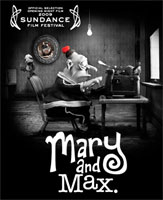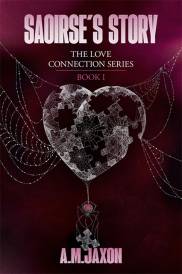Philip Seymour Hoffman A Most Wanted Man
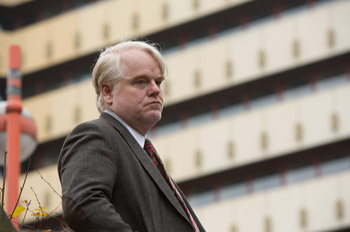
Philip Seymour Hoffman A Most Wanted Man
Cast: Robin Wright, Rachel McAdams, Philip Seymour Hoffman, Willem Dafoe
Director: Anton Corbijn
Genre: Thriller
Synopsis: Over a decade has passed since the terrorist attacks of September 11, 2001 and the German city of Hamburg, where the bombers lived and plotted, remains on high alert. At dusk, a grimy, bearded young man with a backpack emerges as if from the River Elbe itself. Head down, hood up, he keeps to the docks with the city's other vagrants. But his grainy image is soon caught on camera by an observant group of intelligence operatives. They are run by the dishevelled, whisky-drinking, chain-smoking Gunter Bachmann (Philip Seymour Hoffman). Bachmann and his team of sharp young spies comprise a secretive anti-terror unit that works under the radar for Germany's intelligence services to cultivate sources within Hamburg's Islamic community. Bachmann's right-hand woman is the cool, sophisticated Irna Frey (Nina Hoss). They share an easy warmth and an office dominated on Bachmann's side by a wall studded with photographs and Post-It notes.
They identify the young man as Issa Karpov (Grigoriy Dobrygin), a 26 year-old Chechen classified by Interpol as an escaped militant jihadist. He is talking to a man in a sailor's hat they discover is a drifter called The Admiral (Martin Wuttke). He drinks in a bar called the Silbersack, where Bachmann contrives to meet him. He offers The Admiral money in return for information on Karpov under the pretence of a missing persons' search and with his colleagues, Niki (Vicky Krieps) and Maximillian (Daniel Brühl), pretending to be a kissing couple in the background. The Admiral reveals the Chechen is looking for a banker named Thomas Brue (Willem Dafoe), the head of private bank Brue Freres.
Under the watchful eyes of Bachmann's team including Karl (Franz Hartwig) and Rasheed (Kostja Ullman), Karpov befriends a Turkish woman Leyla (Derya Alabora) and her son Melik (Tamer Yigit) and moves into their apartment. Malik introduces Karpov to the idealistic young lawyer Annabel Richter (Rachel Mcadams) from a human rights organisation called Sanctuary North. She is moved by Karpov's story of torture at the hands of the Russian security services and agrees to help him. Karpov reveals he wants to claim an inheritance from his father that is being held for him by Brue's bank. After an initial meeting in Brue's office, Annabel arranges a drink with the banker in the bar of Hamburg's famed Atlantic Hotel. Irna is sitting at the next table when Brue verifies Karpov's story of a bank account containing tens of millions of Euros.
But it is not just Bachmann, Irna and their team who are watching every move made by Karpov and everyone with whom he comes into contact. So too is Dieter Mohr (Rainer Bock), the head of the Hamburg arm of Germany's domestic intelligence service, the Office for the Protection of the Constitution (OPC), a man detested by Bachmann for his clumsy, heavy-handed methods. The feeling is mutual. Mohr sees Bachmann as a dangerous renegade. He just about tolerates Bachmann's presence in Hamburg as Bachmann is supported by his old friend Michael Axelrod (Herbert Grönemeyer), the Berlin-based head of German Overseas Intelligence. A bespectacled bureaucrat, Mohr fears Karpov has come to Hamburg to make contact with Islamist cells in the city and wants to arrest him immediately. Bachmann urges caution, preferring to watch and wait, to work his sources, turn some new ones, and see just who it is Karpov has come to Hamburg to meet. For this is how Bachmann and his unit work. In the war on terror, their sights are set on the generals rather than the foot soldiers. For months they have been trying to infiltrate the world of Dr Faisal Abdullah (Homayoun Ershadi), a moderate Muslim academic, family man and charity fund-raiser who nonetheless Bachmann believes may be funnelling money to terrorist Islamic organisations.
Bachmann's suspicions about Dr Abdullah are shared by Martha Sullivan (Robin Wright), a high-ranking CIA spy in Germany. Innately distrustful of Sullivan's motives, Bachmann is however forced into an uncomfortable alliance with her when it becomes clear she has influence over Mohr. She can keep Mohr from arresting Karpov until Bachmann has what he needs from him. In return, she wants Bachmann to help her secure definitive proof of Faisal Abdullah's terrorist actions.
A game of high-stakes chess is put in motion. Bachmann and his unit have just 72 hours to artfully manoeuvre Tommy Brue, Annabel Richter, Issa Karpov and Faisal Abdullah into play if they are to discover who Karpov is and what he needs the money for, and if Dr Abdullah really does have ties to terror organisations. Bachmann can trust no-one: not Mohr, nor Martha Sullivan, not even Axelrod or Axelrod's boss, Germany's hard-to-read Minister of the Interior Erhardt Burgdorf (Max Volkert Martens). As Bachmann notes, he and his team are doing Germany's - and America's - dirty work for them.
Real lives and professional reputations are being put on the line - all for a most wanted man.
A Most Wanted Man
Release Date: July 31st, 2014
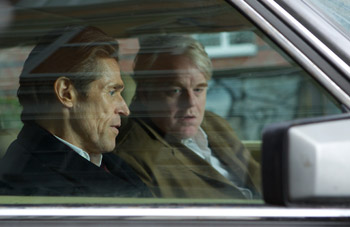 About The Production
About The Production
Director's Statement
Anton Corbijn on Philip Seymour Hoffman: 'He was a giant of a man'
The director of A Most Wanted Man, Philip Seymour Hoffman's last completed film, recalls working with an outstanding actor who liked to immerse himself in his character and give his all:
I'm not sure where to start when looking at Philip Seymour Hoffman's legacy as it is overwhelming in its scope and depth. But that immediately tells you a lot about his choices. He was the best character actor I can think of, and if you look at just the smaller roles he occupied, then those performances alone set him apart from his contemporaries. His strength was a total immersion in the role and a lack of vanity. At the same time, he hated what he loved, that was his curse – he would tear himself to pieces over his performances.
It was my girlfriend Nimi who, upon reading the script of A Most Wanted Man, immediately suggested I approach Philip Seymour Hoffman; in retrospect, there was only one choice. It was obvious that he would be the person to bring this John le Carré character to life. I always imagined this man to have a strong physicality as well as intelligence and a certain kind of leadership. When Philip Seymour Hoffman and I watched the film together in its early stages, I could not believe that the guy sitting next to me was the same person as the one on screen. The belief in the reality of his character was total. Despite any issues he was dealing with outside of the film, domestic or otherwise, the performance never suffered.
Our first meeting was on a still shoot I did with him for Vogue in New York in 2011. While they were mending his trousers in an adjacent hotel room, we used the downtime to discuss the film and his role. He was sitting in his underwear, of course, but he never let his focus shift to the absurdity of the situation. He was serious about the work.
Initially there was some unease between us on the set of A Most Wanted Man, which I attribute to my inexperience as a director and in not verbalising my needs from actors in a way they are used to. But, gradually, Philip Seymour Hoffman and I got to a place where the movie started to flow naturally and he didn't need much direction any more; he totally became the character of Günther Bachmann. He even signed off as Günther on an email to me when he got back home, after the film finished.
His character had a team of young detectives, Nina Hoss and Daniel Brühl among them, and on and off set he would be very much like their mentor. He would be protective of them and available as an actor with advice or encouragement. On the other hand, he would not hang out with actors who played roles that he, as a character in the film, had no time for. At night, we exchanged emails over scenes to come and to work out where we were going with it. He had an incredible take on his character and the film as a whole and it was fantastic to share this with him. We bonded over many things in the end, music being one of them. I made him a tape of songs I wanted to use in the film which he loved very much, particularly the Tom Waits track Hoist That Rag, as he too had been listening to it recently.
Philip Seymour Hoffman and I had dinner with our partners Mimi and Nimi in the late summer and he was a wonderful spirit and company to be with. He was a giant of a man in every way imaginable and his demise is not only a tremendous loss to the world at large and to lovers of great art, but very much on a human level. He was 200% human, with all the struggles and flaws that come with this – and that is where that great art came from, I like to think.
It is unlikely I can do him justice with my writing but I like to think I did him justice in the film we made, where he is outstanding, and deserving of all our attention. I know he was extremely proud of it and we were talking about working together again when we met two weeks ago. As he put it: "I hope we get to do this again on another film. We know more now and I feel we'd fight well together and be unshakeable, and that's exciting."
Alas, it will never be and that makes the end of our film even harder to watch.
-Anton Corbijn
Published on February 3, 2014
The Making Of A Most Wanted Man
At once both a tense, exciting spy thriller and a portrait of loneliness, A Most Wanted Manis the third film to be directed by Dutch filmmaker Anton Corbijn (Control, The American), and is based on on the best-selling 2008 novel of the same name by John le Carré.
'It is a very European story and so we were looking for a European director," says Gail Egan, one of the film's producers. 'We thought Anton Corbijn's style and the whole way he saw the story was just so exciting. We had all seen Control and thought it was absolutely brilliant. The American was just about to come out when we first approached Anton."
Anton Corbijn, who knew the German city of Hamburg well and had directed his very first music video (for Palais Schaumburg) in the city back in 1983, was intrigued by the subject matter. 'We are dealing with a world that has changed so much since 2001. We judge people very quickly, everything has to be black or white. I feel this is something that is affecting all of our lives," he says.
A Most Wanted Manis produced by Potboiler Productions, The Ink Factory and Amusement Park.
Potboiler Productions, headed by Gail Egan and Andrea Calderwood, had previously turned le Carré's novel The Constant Gardener into a multiple award-winning feature film directed by Fernando Meirelles in 2005. In contrast to the sunshine-infused African setting of the earlier film, this time the producers needed a director who could capture the grey moodiness of contemporary Hamburg, one of the most diverse, vibrant and rich cities in Europe.
The Ink Factory is the production company set up by Simon Cornwell and Stephen Cornwell, the sons of John le Carré (who was born David Cornwell). Los Angeles-based Stephen Cornwell is also a screenwriter whose credits include the Liam Neeson thriller Unknown. A Most Wanted Manis their debut feature as producers.
Amusement Park, based in Hamburg and Berlin, is headed by Malte Grunert, whose credits include David Mackenzie's Perfect Sense. Malte joined the production at an early stage and ensured the film retained an authentic German flavour.
With financing from the UK's Film4, Australian writer Andrew Bovell, best-known for the complex, sophisticated drama Lantana, was asked to write the script.
'We all had a huge respect for Lantana which really spoke to a lot of the levels of character intrigue and deception we wanted to have," says Stephen Cornwell of the choice of Andrew Bovell. 'Lantana also has the same richness of characterisation and storytelling.
'One of the interesting things about A Most Wanted Manis that it doesn't really have an antagonist," Stephen Cornwell continues. 'It has lots of people who all believe they are doing the right thing but their reasons are all different. They come into conflict around one central objective, which is the most wanted man who they all see from a different perspective and want for different reasons."
Anton Corbijn and Andrew Bovell met a couple of times, including once in Hamburg, to talk through the adaptation. Andrew Bovell wrote most of the script in Australia, with Anton Corbijn preferring to wait until he had a finished version in his hands before putting his own mark on it. 'I find it much easier to reach to the writing on the page," Anton Corbijn explains. 'Once it's finished I try to make it a little bit more mine. That's the nature of how I work."
One way in which Anton Corbijn made the project his own was by insisting on an autumn shoot. In this, he colluded with his leading man, Academy Award®-winner Philip Seymour Hoffman.
'I wanted the film to be autumnal in its look, with the colour palette of the autumn leaves. Philip Seymour Hoffman wanted the summer off. So I told him to push for that with the producers!" Anton Corbijn quips.
A Most Wanted Manshot wholly in Germany - 38 days in Hamburg, with a further two days in Berlin at the end of the shoot – in September and October 2012. The producers were able to access financial subsidies from Germany's federal incentive programme, the DFFF, as well as the regional German funds, the FilmForderung Hamburg Schelswig Holstein and the Medienboard Berlin Brandenburg. FilmNation has international sales rights to the project. Senator Film's Helge Sasse is co-producer, and Sam Englebardt, Michael Lambert and William D Johnson of US fund Demarest part-financed the project with Film4. A Most Wanted Manalso received support from the European Media Production Guarantee Fund.
Le Carré himself visited the set several times, lending his backing and encouragement to the process. As a seasoned observer of the journey from page to screen, le Carré believes his novels need to evolve to make that transformation successfully. For that to happen, he is happy to take a step back.
'The novel is his, but the movie will be Anton Corbijn's and that's a transition he really supports and enjoys," says Stephen Cornwell. 'What's interesting about the adaptation is that it is quite distinct from the novel. There is a whole aspect to the novel that isn't in the movie. It finds its own language and its own way of telling the story. But at the same time it is incredibly true to the intent of the story. It's exactly what a really good adaptation should be. It takes a novel, respects its intent but it becomes something of its own."
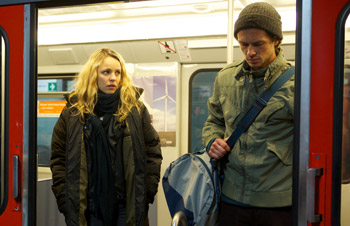 For many of the cast and crew, including Anton Corbijn and Philip Seymour Hoffman, A Most Wanted Manwas their introduction to le Carré's novels.
For many of the cast and crew, including Anton Corbijn and Philip Seymour Hoffman, A Most Wanted Manwas their introduction to le Carré's novels.
'This is a human and humane story about governments and spy organisations which is usually told in a flashier, romantic style," Philip Symour Hoffman observes. 'There's nothing romantic about this. The book is in there for which I'm glad, as the book is amazing."
Casting A Most Wanted Man
Putting together the first-class cast who portray the complex web of characters who inhabit the world of A Most Wanted Manwas Anton Corbijn's achievement. 'Anton Corbijn was singularly precise about who he thought should play each role," Stephen Cornwell recalls. 'In almost every situation, those are the people who are in the movie."
The acclaimed film and theatre actor Philip Seymour Hoffman, who won an Academy Award® for Capote in 2006, and has been nominated a further three times for Charlie Wilson's War, Doubt and The Master, was the first to come on board. He plays Gunter Bachmann, the brilliant, querulous head of a small anti-terror organisation stationed in Hamburg, which is disliked by the wider German intelligence community for its softly-softly approach and focus on the long game. Philip Seymour Hoffman is one of the finest actors of his generation and is renowned for his commitment to the work. He worked with Andrew Bovell on Bachmann, a character for whom he came to have a great empathy.
'This movie is about a lot of things including, obviously, how countries deal with terrorism," says Philip Seymour Hoffman. 'But it's also about a man who keeps doing the same thing and getting the same result. You get the feeling he can't stop. He really feels like he's trying to do the right thing and I think, actually, he is. But the world isn't going along with his way of taking care of the bad guys of the planet.
'I was just so taken with his tunnel vision. He just thought -It's going to work this time and they're going to see that I know, that I actually know'. That's a hard way to live, to be someone who thinks, -if they could just see what I see, they'll get it'. But they never let him get there and he keeps going there. He suffers."
Philip Seymour Hoffman's character Bachmann tries to get at the main men, those people who act as the puppeteers in their attempts to get others to blow themselves up and plant bombs. Says Anton Corbijn of his performance:
'Philip Seymour Hoffman is the best actor I have ever worked with. He brought so much to the role of Bachmann. He is Bachmann. To me, although it is to an extent an ensemble piece, Bachmann was always the main character and Philip Seymour Hoffman made it undeniably his film. Interesting to observe how he also took really good care of his team off screen."
To get to the people at the top of the terrorist hierarchy, Bachmann and his team have to inveigle their way into other people's lives.
'They do that work and that's the hard work," says Philip Seymour Hoffman. 'They are really in these people's faces and they have relationships with these people, sometimes really intimate relationships. And he's really, really good at it. He is a real person with these people but he needs them to do something which is not something they would normally want to do. He has his ways. Sometimes it's a loving act. Sometimes it's a brutal act. But he'll do it to get at the person who really does truly need to pay a price."
Philip Seymour Hoffman's fellow cast members talk of the tremendous physical presence the actor brought to the set. 'He puts himself in this mood and he has that power, that aura," says the leading German actor Daniel Brühl who plays Max, one of the members of Bachmann's close-knit, loyal team. 'It was very focused and very strong."
'He is such a great colleague as he is so into his work," says the award-winning German actress Nina Hoss who plays Irna Frey. 'You can really talk about your characters. He came up with things such as, -I think you should have that line as it is much better for your character than for mine'."
Through the role of CIA agent Martha Sullivan, as played by the Golden Globe®-winning US actress Robin Wright, we get to see a side of Bachmann that enriches the story.
'The relationship Bachmann has with Martha Sullivan is really tricky. He doesn't trust her at all," says Philip Seymour Hoffman. 'There's something about her that is very Bachmann in a very female, American sense. She's quite focused and she's probably better than him at what she does. Robin Wright is just wonderful."
'Robin Wright's role is an important one and she was perfect for it," says Anton Corbijn.
Nina Hoss, one of Germany's leading actresses, whose credits include the acclaimed World War Two drama Barbara, plays Irna Frey, Bachmann's right-hand woman and the person who most definitely has his back covered.
'She knows what he is thinking, what he needs and how to help him out," says Nina Hoss of Irna Fey. 'They share a sense of humour and she is the good cop to his bad cop."
Anton Corbijn and Nina Hoss are old friends and were thrilled to be able to work together for the first time. 'She is fabulous and often understated" says Anton Corbijn of Nina Hoss. 'There was a really good camaraderie between her and Philip Seymour Hoffman."
The Canadian-born actress Rachel McAdams, whose most recent roles include Midnight in Paris and About Time, is Annabel Richter, the idealistic, slightly naive, human-rights lawyer who tries to help the mysterious Chechen Issa Karpov. Annabel forms the nexus of a triangle that encompasses Karpov and Bachmann. Both men want something from her and she stands between the two of them.
'Bachmann sees Annabel as someone who has made some choices which he thinks are pretty clumsy and are only going to hurt people, not help them," says Philip Seymour Hoffman. 'He deals with her pretty roughly. But it's for a reason."
Rachel McAdams says she was drawn to the theme of loneliness in the film.
'They are all people who are seeking out love, different kinds of love in different kinds of ways, whether it's love of God or spirituality or physical love of another human being or misplaced or unrequited love," she says. 'Anton Corbijn is focused on how they reach out to each other and the ways in which they choose to be alone."
Many actors were interested in the key part of Issa Karpov, the titular -most wanted man'. But Anton Corbijn was keen to cast a fairly unknown actor to play the hunted, haunted Chechen, preferably from Eastern Europe. 'Issa was a hard one to cast," he admits. 'Grigoriy Dobrygin was a good find. It's great to find someone people don't know."
Grigoriy Dobrygin is well known in his native Russia for the hit film How I Ended This Summer. The film's casting teams in the UK and Germany both came up with Dobrygin's name.
'It was quite obvious when he came in to audition that he had this magnetism in his eyes, this intensity," says producer Gail Egan. 'We all just sat there going, -wow'. And he grew us a great beard!"
Grigoriy Dobrygin had most of his scenes with Rachel McAdams. She points out he and Anton Corbijnare the perfect match. 'Anton Corbijn is so economical sometimes," says Rachel McAdams. 'He says so much with so little in the way he shoots the scenes. There's just a glance sometimes or just a feeling, something happening between the characters that doesn't necessarily have to be spoken or expanded on beyond that. Grigoriy Dobrygin is really good in those moments and mines them. He has a real presence, which Issa needs to have. The audience should be on uncertain ground with him and he does that very well. There's real mystery there."
Philip Seymour Hoffman is unequivocal in what he believes to be Bachmann's view of Issa Karpov, a young man whose mother died giving birth to him after being raped by his Russian oligarch father. 'He's just a kid," says Philip Seymour Hoffman. 'Bachmann sees him as the product of his upbringing, of what he saw and what he knew."
As in the book, the international banking community presence in Hamburg is represented by the English banker, Thomas Brue – played by two-time Academy Award®nominee Willem Dafoe.
'We spent a lot of time getting the right person for Brue and to avoid predictable choices," Anton Corbijn explains. 'Willem often plays bad guys and I thought it would be an interesting to have him play this character who indeed is not."
Anton Corbijn and Williem Dafoe have known each other for years, with Anton Corbijn taking Willem Dafoe's favourite photograph of himself years ago in New York City.
Willem Dafoe relished the opportunity to play a man looking for a redemption of sorts from the sins of his father – as is Issa Karpov.
'Brue is really struck by Annabel. He admires her courage," says Williem Dafoe. 'She gives him the hope he can do the right thing with the money. He is happy to get rid of it."
Rachel McAdams relished the atmosphere Williem Dafoe created on set. 'Willem Dafoe is so open and full of energy," she says. 'He's up first thing in the morning doing yoga."
Acclaimed Iranian actor Homayoun Ershadi, whose credits include A Taste of Cherry and The Kite Runner, plays the enigmatic academic and fund-raiser Dr Faisal Abdullah. He is the man Bachmann and his team have been following for a while. When Issa Karpov arrives in Hamburg he provides Bachmann with an opportunity to discover exactly what Dr Abdullah's activities involve and with whom he is working.
For Anton Corbijn, Dr Abdullah is a man trying to the right thing. Dr Abdullah knows he needs to give some money to the people who can distribute his aid to some of the most hard-to-reach places in the world through the Seven Friends shipping company. To do this Dr Abdullah must turn a blind eye to the other illegal, perhaps terrorist-related activities these people may be involved with. These are the people Bachmann and his team want to get to.
'If you want to get goods to certain parts of the world, maybe you have to use middlemen who may be involved in other things. He is aware of that but I don't think he means to support their other activities," says Anton Corbijn. 'Homayoun is a lovely man. It is a very dignified performance and he brought a real class to the role. You can see he has a good heart."
German star Daniel Brühl, who plays Max, an integral member of Bachmann's team, was amused to see the English-speaking actors in the cast performing with German accents. 'Normally we have to try and speak with American or English accents and this time it's the other way around!" he chuckles. 'It's great to see all these American actors having a dialect coach and learning a German accent."
A pleasant discovery for Anton Corbijn is Mehdi Dehbi, the actor who plays Jamal, the son of Dr Abdullah. Jamal is working with Bachmann to coerce his father into also working with Bachmann in order to infiltrate the Seven Friends shipping company. We are unaware just why Jamal has agreed to do this although Corbijn hints at the use of blackmail, perhaps about a German girlfriend, on Bachmann's part.
'He was a big surprise to me," says the director of the Egyptian-born, Belgium-based actor. 'He was very focused, unaffected by everything going on around him and very soulful."
There was a very collaborative atmosphere on set among all the actors. 'Almost every conversation was about how to make things work better in terms of their character," says Stephen Cornwell. 'It was amazingly un-egocentric."
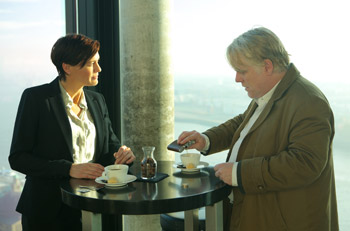 Working With Director Anton Corbijn
Working With Director Anton Corbijn
Anton Corbijn's dynamic style of filmmaking created the positive, energetic vibe on set. 'There is a nimbleness to Anton that comes of being a photographer," observes Gail Egan. 'He is constantly searching for a visual language that captures the moment and tells the story in a very economic way."
Anton Corbijn's ability to respond quickly to events worked well on a shoot that often required several different locations each day throughout Hamburg.
'It was a big script to shoot in 40 days so we had to move fast," says Gail Egan.
'There is a directness to Anton Corbijn's visual language that has a very practical effect," says Malte Grunert. 'We were shooting on a train station, waiting for a train to come in. After half an hour we heard it was on fire and still parked in another station. While we waited for six fire engines to put out the fire and the authority to give us another train, we just went on shooting something else."
His cast talk warmly of their director. 'Anton Corbijn is a gorgeous man, a beautiful man, with a terrific artist's sensibility," says Philip Seymour Hoffman. 'He looks at everything in a unique way you just trust he is going to make something special. He also trusts people to be able to let them do what they do. If I need to go to him for help, he'll do what he can, but he'll also let me do what I need to do to get where I need to go. He doesn't get in your way. In fact, he lets you run with the ball sometimes without even talking about it. He has a big heart, his artistic sense is really sharp and his trust of other people is complete."
Anton Corbijn gave his actors a sense of freedom and empowerment, ensuring they were fully part of the process.
'He is lovely and kind and positive," says Rachel McAdams. 'He always makes sure to say something positive at the end of every scene and give the actor's ego a good stroking which it needs sometimes. It's a very gentle creative atmosphere. His sense of what is beautiful and aesthetically interesting is off the chart. He can just see it right away. He's got an eye for those unexpected moments that make the story much richer."
Anton Corbijn says there is always room for an actor's input, encouraging improvisation but only when appropriate. 'I don't always stick to exactly what-s on the page," he explains. 'I always listen to people who have more experience than me. But if they are not right, I won't listen to them."
'He is very precise with what he wants and how he wants it to look," confirms Nina Hoss. 'It's wonderful, very quick and fast."
'Anton Corbijn is very clear about what he wants," agrees Williem Dafoe. 'We rehearse before shooting but we don't do a lot of takes and we don't do a lot of traditional coverage. He doesn't necessarily feel an obligation to get the coverage that compliments the scene. He sees that shot and knows he's going to build a scene around that shot. He's so clear about it that it doesn't feel risky at all."
Anton Corbijn surrounded himself with an experienced technical team led by French cinematographer Benoît Delhomme, whose credits include John Hillcoat's The Proposition and Lawless, Anthony Minghella's Breaking And Entering, and Lone Scherfig's One Day; German production designer Sebastian T. Krawinkel, who has worked on Roman Polanski's The Pianist, Jean-Jacques Annaud's Enemy At The Gates and Paul Greengrass's The Bourne Ultimatum; and German art director Sabine Engelberg, whose credits include Paul W S Anderson's The Three Musketeers and Michael Hoffman's The Last Station.
The editor is Claire Simpson who won an Oscar® for her work on Platoon in which Williem Dafoe starred. 'Claire is very good at putting together performances," saysWilliem Dafoe. 'The combination of Anton Corbijn's economy, his directness and clarity and Claire Simpson is very good."
Shooting On Location In Hamburg
The story of A Most Wanted Manis also the story of Hamburg itself. It is a wealthy, historic port city, which has long housed Europe's richest shipping magnates and whose shabbiest areas are now undergoing a period of genteel gentrification. For centuries it has welcomed immigrants, particularly from nearby Turkey and Northern Africa. But its role as the city in which the 9/11 terrorists constructed their diabolical plot out of sight of the intelligence authorities, has created a moral panic and distrust of strangers.
A Most Wanted Manis a story about fear. Who can we trust? Of whom should we be afraid? Is that dark-skinned man friend or foe? For the filmmakers, it was absolutely necessary to shoot the film on location in Hamburg.
'In the novel, all of the locations are so specifically described and accurate, obviously by someone who really knows the place," says Grunert. 'It would have seemed weird to just move it somewhere else. We have made great use of the diversity of Hamburg: the harbour, the industrial side. The support from the city has been absolutely amazing, enabling us to use train lines, to shut down stations, shoot in the red-light district, close tunnels and use rooftops."
'Both Anton and Benoît have done a really good job of being flexible enough and very light on their feet," says Egan. 'They have used a lot of hand-held cameras and whatever challenges have come their way, in terms of locations or passersby, they managed to solve within the day."
The experience of shooting in Hamburg was invaluable for the cast.
'Everything feeds into what you're doing," says Dafoe. 'Even going out to dinner is a field trip for your character because you can imagine him being there. You can imagine him being around the corner because you feel him here because it's so Hamburg-written."
'It's been so great to hear the German dialect 24/7 and be steeped in the culture and the place itself," says McAdams. 'That's the beauty of shooting where the film is taking place and not having to pretend. It's been a real advantage. Hamburg has a really specific feeling, being a port city. It's got an openness about it, with all the comings and goings that happen in a port town. It's quite liberal and there's so much culture and diversity and so many different types of people cohabiting and trying to live harmoniously."
A Most Wanted Man
Release Date: July 31st, 2014
Have You Seen This?
MORE



